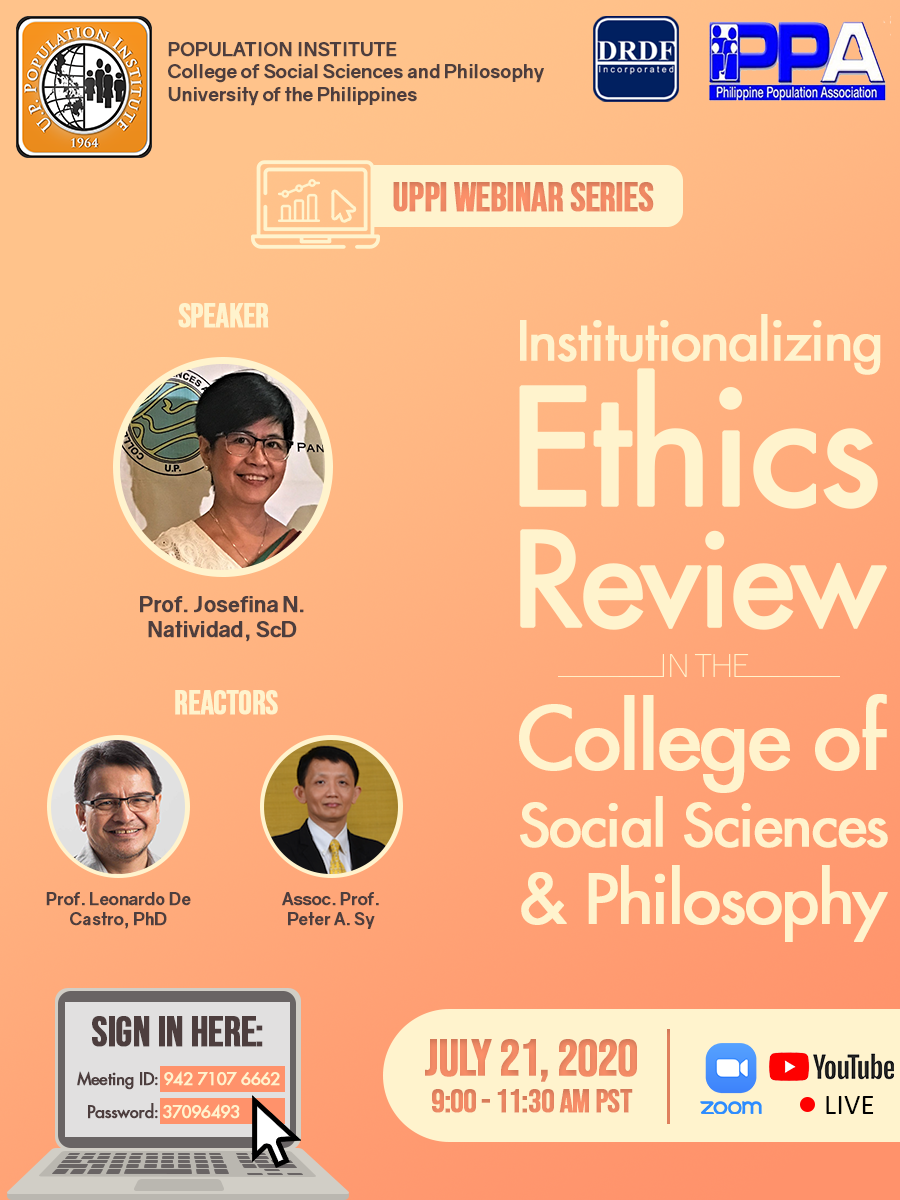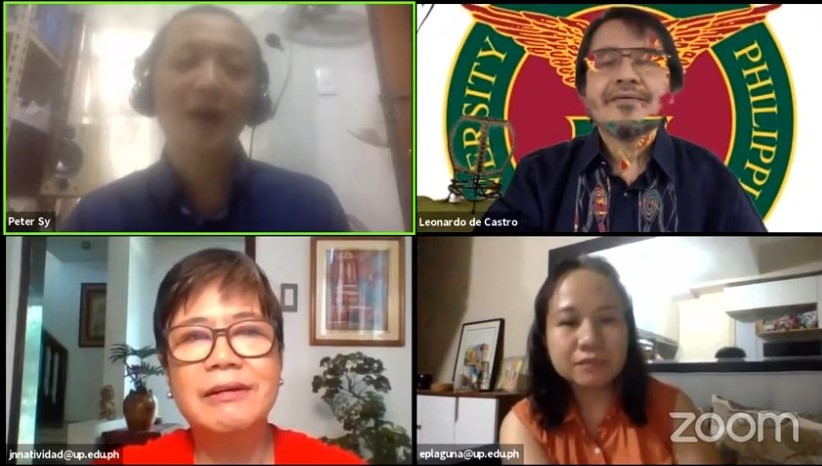
UP Population Institute (UPPI) Professor Dr. Josefina N. Natividad formally ended her over four decades of service to the University of the Philippines on a high note with a webinar on ethics review of research with human participants and how it can be institutionalized in the College of Social Sciences and Philosophy (CSSP), UP Diliman.
Co-sponsored by the UPPI, the Demographic Research and Development Foundation (DRDF), and the Philippine Population Association, the webinar entitled “Institutionalizing the Ethics Review Process in the College of Social Sciences and Philosophy” was held in the morning of July 21, 2020 via Zoom. It was also broadcasted live on UPPI’s official Facebook and Youtube pages. The webinar was moderated by Mark Ryan B. Paguirigan, research assistant at the DRDF with Dr. Grace T. Cruz, UPPI Director, delivering the opening remarks.
The webinar covered both broadly and in depth the complex issues surrounding ethics in social science research. In her presentation, Dr. Natividad expounded on the common definition of what constitutes research with human participants and the situations by which a research proposal upon evaluation by an Ethics Review Board may be deemed exempt from ethics review, recommended for expedited review, or for full Board review. Furthermore, she presented activities that may not be considered research with human participants although undertaken by academic disciplines.
Dr. Natividad, who served as Chair of the CSSP Research Ethics Committee (REC) from 2018 to 2020, shared the accomplishments of the REC over a 2-year period, culminating with a draft Standard Operating Procedures (SOP) for a proposed CSSP Ethics Review Board. The draft was prepared by a 3-person subcommittee composed of faculty members Renato Manaloto, Diwa Malaya Quinoňes and Rizza Kaye Caces with her supervision. Finally, she outlined the steps that the CSSP should take to revive the practice of ethics review in the college, this time expanding its scope to include review of student research in both graduate and undergraduate levels.

Clockwise from top-left: Prof. Peter Sy, Dr. Leonardo De Castro, Dr. Elma Laguna, and Dr. Josefina Natividad.
Two reactors, both from the CSSP Department of Philosophy and experts in the field, complemented the lecture of Dr. Natividad. Assoc. Professor Peter A. Sy began with a historical analysis of research ethics review in the CSSP beginning in 2010. His presentation focused on the implications of the current sub-par state of research ethics review in the CSSP wherein there is a possibility for ‘mission creep’, or an over-reliance on experts and underestimation of threats to vulnerable populations, and dissatisfaction with the review system due to a number of factors. At the end of his presentation, Prof. Sy expressed some optimism with the CSSP’s revival of the research ethics review process which was discontinued when the college's research ethics committee was dissolved to give way to a Diliman-wide research ethics committee.
The second reactor was Dr. Leonardo D. De Castro, professorial lecturer and former Chair of the Department of Philosophy. Prof. De Castro discussed the activities that are not covered by ethics review, raising some questions on where the lines on research are currently drawn to include or exclude particular cases. He underscored the need to protect the rights of vulnerable sectors of society and the conditions meriting the use of waivers for informed consent. Finally, he issued a call for CSSP scholars and researchers to address the social causes of physical and mental malaise, promoting “health-related social science research” to rectify social ills.
After the two reactors, an Open Forum moderated by Dr. Elma P. Laguna followed with the three main speakers answering questions from the audience sent using Zoom’s Chat function. The webinar formally ended with a closing remarks from Dr. Maria Bernadette L. Abrera, Professor of History and former CSSP Dean under whose term the Ethics Review Committee of the CSSP was formed in 2018.
The video of the entire webinar is available on Youtube with the following link.
Share
